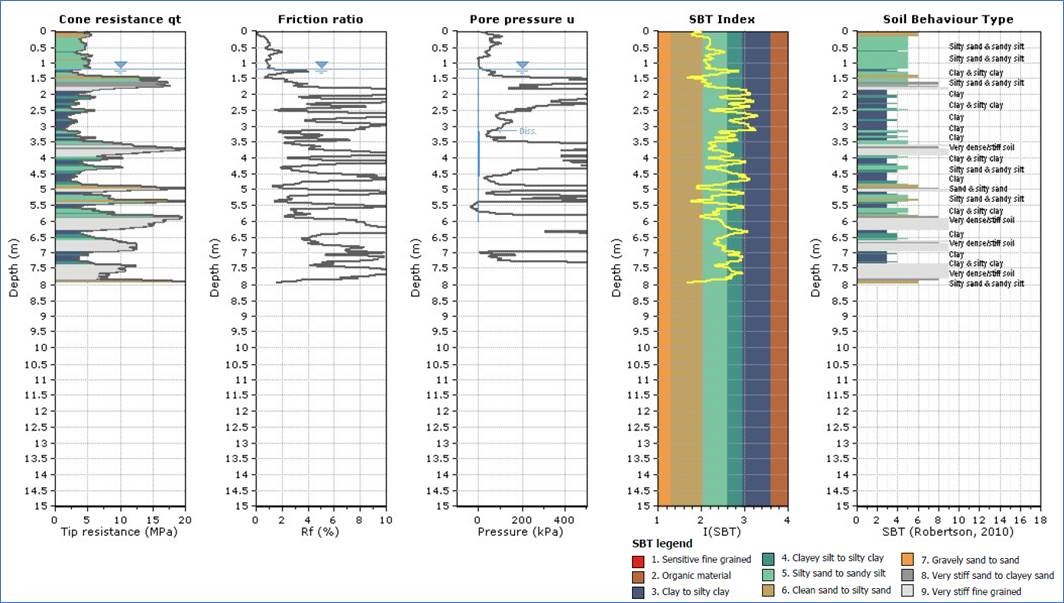ATI Geologica specializes in in-situ testing for geotechnical and environmental investigations using advanced geo-environmental methods of exploration including cone penetration testing (CPT). CPT is a globally recognized, well-documented, clean, safe, and reliable method of rapidly obtaining a wealth of valuable geotechnical data for your project. The results correlate well with the Standard Penetration Test (SPT) and other geotechnical site data.
CPT is efficient, very repeatable and produces little to no arisings or waste. The test is used to determine the engineering properties of the soil including but not limited to; relative density; coefficient of consolidation; undrained shear strength and friction angle.
Advantages of CPT testing over SPT include continuous data for soil profiles, improved measurements of critical geotechnical design parameters, and ability to obtain site-specific shear wave velocity data for improved seismic site design and evaluation of liquefaction potential. CPT data is used to estimate skin friction and end bearing for the design of pile foundations and directly calculate the bearing capacity of driven piles.
CPT is an effective method of obtaining a large amount of subsurface data in a relatively short amount of time, adding a great deal of value to a project whilst lowering the overall project cost.
We offer seismic, piezometric, cone penetration testing with a range of output parameters to suit your project. The CPT can provide you with the following invaluable subsurface information:
- Undrained shear strength
- Coefficient of consolidation
- Hydraulic conductivity
- Relative density
- Static pore pressure
- Overconsolidation ratio
- Initial shear modulus
- Friction angle
- Constrained modulus
- Compression index
- Stress-strain relationship
Typical Data Output
